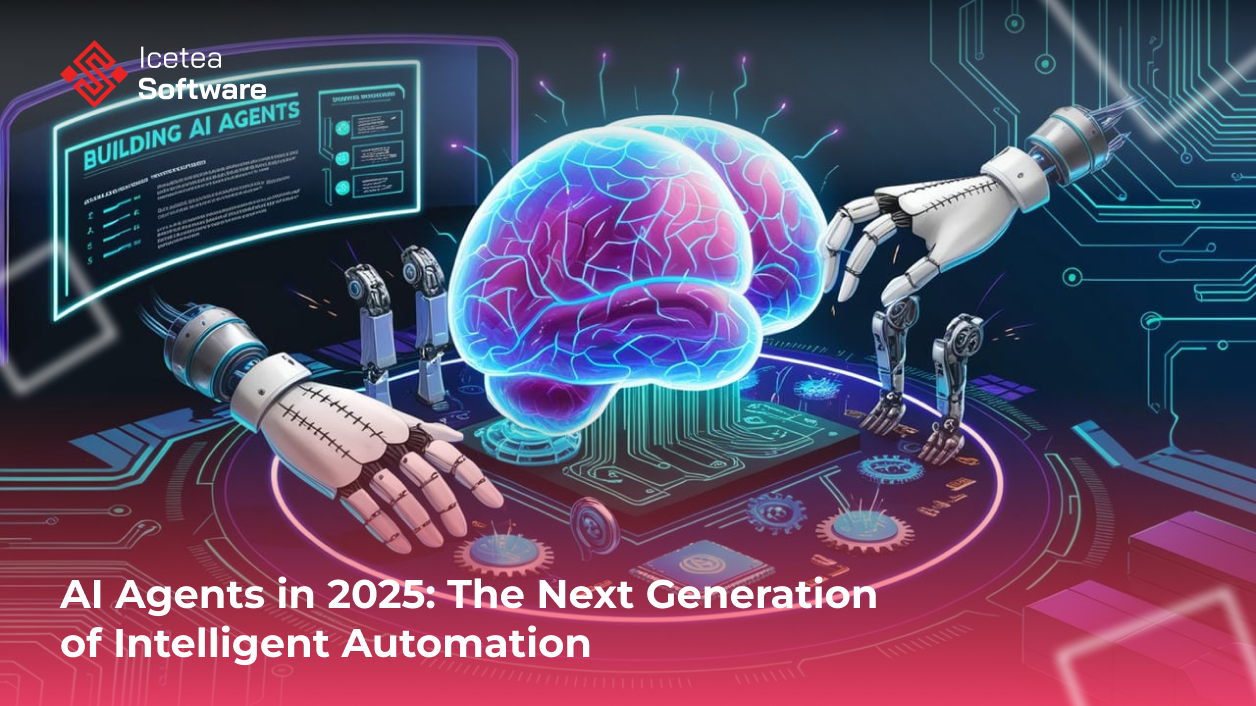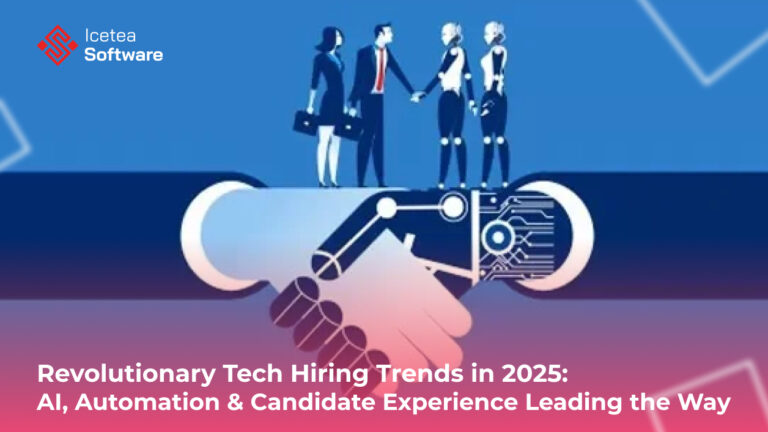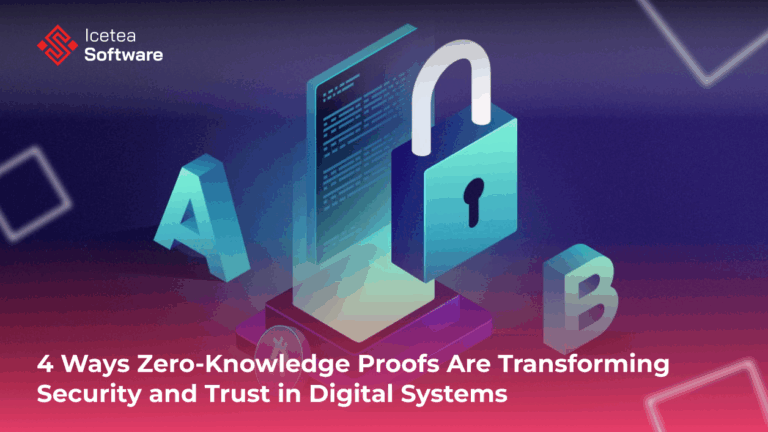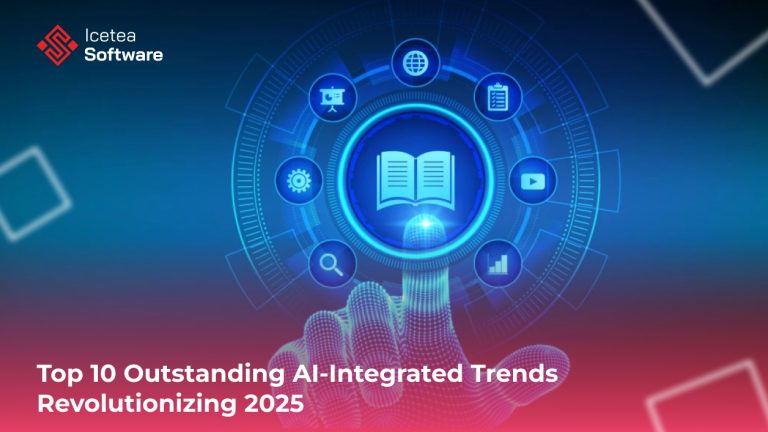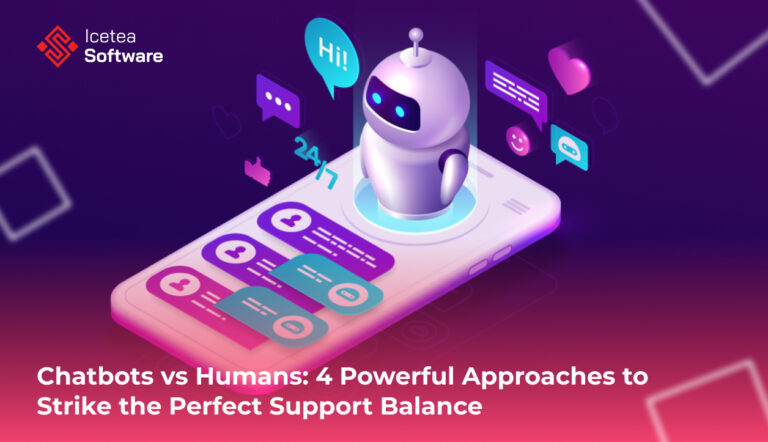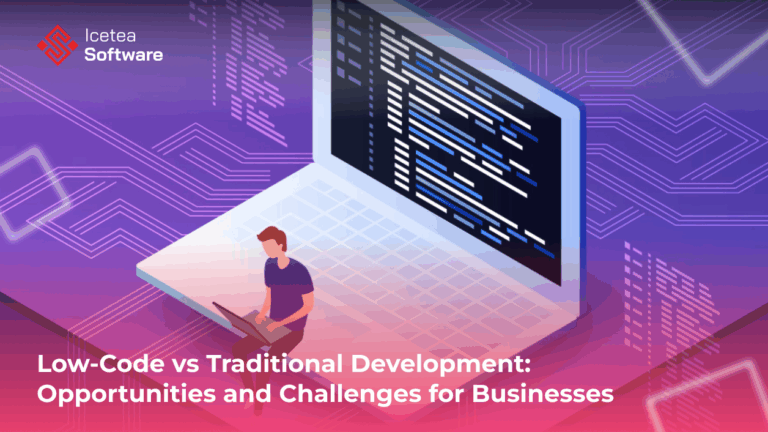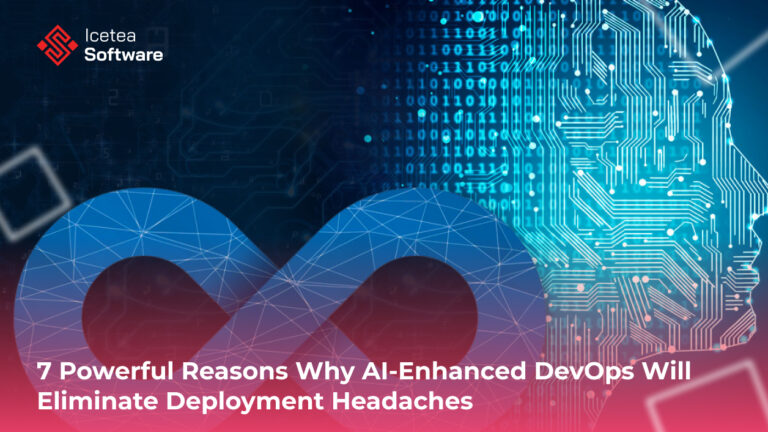AI Agents in 2025: The Next Generation of Intelligent Automation
- Introduction: Beyond Traditional Automation
- From Automation to Autonomy: A Necessary Evolution
- Core Capabilities of AI Agents
- Why Businesses Need AI Agents Now
- Industry Applications: Where AI Agents Are Making an Impact
- Challenges and Responsible Adoption
- The Future Landscape: AI Agents in the Next Five Years
- How Businesses Can Get Started
- Final Thoughts
- About Icetea Software
Introduction: Beyond Traditional Automation
For decades, automation has been synonymous with efficiency. Organizations adopted robotic process automation (RPA), workflow engines, and scripts to eliminate repetitive tasks, cut costs, and reduce human error. From invoice processing in finance to assembly lines in manufacturing, automation proved its worth by standardizing and accelerating work.
Yet, as industries entered the digital-first era, cracks in the foundation of traditional automation became clear. Workflows were rigid, unable to adapt to dynamic market conditions. Rules-based bots broke when systems changed slightly. Context was absent—machines executed commands but rarely “understood” why they were doing so.
Now, in 2025, a new paradigm has emerged: AI agents. These intelligent, autonomous entities are not just automating tasks—they are capable of perceiving, reasoning, adapting, and even collaborating to achieve broader goals. With AI agents, automation is evolving from task execution to goal-driven autonomy. This shift is redefining the way businesses and societies think about productivity, innovation, and decision-making.
From Automation to Autonomy: A Necessary Evolution
The story of automation can be divided into several chapters, each representing a leap forward in capability:
- Rule-Based Automation (Pre-2000s): Organizations relied on scripts, macros, and workflow engines to mechanize predictable tasks. Efficiency was high, but flexibility was non-existent.
- Robotic Process Automation (2010s): RPA enabled large-scale digital task automation—extracting data from invoices, moving information across systems, and generating routine reports. However, these bots required structured data and constant human oversight.
- AI-Powered Automation (2020s): The integration of machine learning, natural language processing (NLP), and predictive analytics brought intelligence to automation. Chatbots emerged, predictive models optimized logistics, and algorithms recommended actions. Still, human direction was central.
- AI Agents (2025 and Beyond): Unlike their predecessors, AI agents combine perception, reasoning, and autonomy. They don’t just follow instructions—they understand objectives and chart their own course of action to achieve them.
This evolution reflects a fundamental transition: automation is no longer about speeding up tasks but about delegating goals to intelligent systems that can figure out the “how.”
Core Capabilities of AI Agents
AI agents stand out because of the unique blend of abilities they bring to the table. Four capabilities, in particular, define them:
1. Autonomy
AI agents can operate without constant human supervision. Instead of requiring line-by-line programming, they take high-level goals and pursue them independently. For example, a sales AI agent can analyze pipelines, identify promising leads, craft outreach strategies, and update the CRM—without being told exactly which steps to follow.
2. Reasoning and Problem-Solving
Whereas traditional bots fail when workflows deviate, AI agents can reason about alternatives. They leverage large language models (LLMs) and advanced reasoning engines to solve unexpected challenges. For instance, if a logistics disruption occurs, an AI agent can evaluate alternatives—rerouting shipments, negotiating with suppliers, and notifying customers proactively.
3. Adaptability and Learning
AI agents learn from feedback and experiences, becoming smarter over time. An HR recruitment agent, for instance, might refine its candidate ranking models based on past hiring outcomes, improving accuracy with each hiring cycle.
4. Collaboration
AI agents are not isolated bots; they can collaborate with humans and other AI agents. This enables multi-agent systems where multiple specialized agents coordinate seamlessly—like a digital marketing agent generating content while another optimizes ad spend, and a third monitors campaign performance.
These capabilities make AI agents dynamic, resilient, and context-aware—qualities that were absent in previous generations of automation.
Why Businesses Need AI Agents Now
The timing of AI agents’ rise is not coincidental. Several macro-trends make their adoption urgent in 2025:
- Complexity of Operations: Global supply chains, hybrid work models, and dynamic regulations demand systems that adapt in real time.
- Explosion of Data: Businesses are overwhelmed with structured and unstructured data. AI agents can process and act on this data faster than human teams.
- Talent Shortages: Skilled labor shortages persist across industries. AI agents help fill operational gaps without replacing human creativity.
- Customer Expectations: Modern customers demand personalized, instant experiences—something static automation cannot provide.
- Competitive Pressures: Early adopters of AI agents are gaining productivity and innovation advantages, creating a widening gap for latecomers.
Simply put, traditional automation is no longer enough. To remain competitive, businesses need automation that is flexible, adaptive, and intelligent—qualities embodied by AI agents.
Industry Applications: Where AI Agents Are Making an Impact
The promise of AI agents is best understood through real-world applications. In 2025, several industries are already witnessing tangible benefits:
1. Finance and Banking
Financial institutions use AI for fraud detection, portfolio optimization, and regulatory compliance. Instead of flagging suspicious transactions manually, agents monitor patterns, block potential fraud in real time, and report anomalies with contextual explanations.
2. Healthcare
AI agents act as continuous health monitors, analyzing patient vitals from wearables, recommending lifestyle adjustments, and alerting doctors to anomalies. In clinical settings, they manage administrative workflows, freeing up medical staff to focus on care.
3. Supply Chain and Logistics
AI predict demand shifts, negotiate contracts with suppliers, and optimize last-mile delivery routes. When disruptions occur—such as weather events or strikes—agents proactively adapt, minimizing delays.
4. Software Development and IT Operations
In DevOps, AI agents are emerging as self-healing entities. They monitor applications, detect performance issues, deploy fixes, and even roll back faulty updates autonomously. This drastically reduces downtime and accelerates software delivery cycles.
5. Education and Learning
In education, AI tutor agents deliver personalized learning paths. They adjust difficulty based on student performance, provide instant feedback, and recommend additional resources. This enables scalable, individualized education without overwhelming teachers.
Across industries, the unifying theme is that AI agents don’t just automate processes—they orchestrate intelligent workflows that adapt to real-world complexity.
Challenges and Responsible Adoption
Despite their potential, AI are not without challenges. Responsible adoption requires addressing several key concerns:
1. Data Privacy and Security
Because AI agents rely on vast amounts of sensitive data, organizations must implement strong safeguards to prevent breaches and misuse.
2. Bias and Fairness
If AI agents are trained on biased data, they can reinforce or even amplify inequities. Transparent model training and ethical frameworks are essential.
3. Integration with Legacy Systems
Many enterprises rely on outdated infrastructure. Integrating AI agents into these ecosystems can be costly and complex.
4. Ethical and Legal Accountability
If an AI agent makes a harmful decision, who is responsible? Clear regulations and accountability frameworks are still evolving.
5. Human Trust
For AI agents to gain widespread acceptance, employees and customers must trust their reasoning, decisions, and transparency. Without trust, adoption will stall.
Organizations must therefore pair technical adoption with strong governance, training, and communication strategies.
The Future Landscape: AI Agents in the Next Five Years
Looking ahead, the trajectory of AI suggests transformative changes across industries and society:
- Multi-Agent Ecosystems: Industries may rely on networks of agents collaborating across organizations. Imagine supply chains where agents from manufacturers, distributors, and retailers coordinate seamlessly.
- Agentic Economy: AI agents could become economic actors—negotiating contracts, trading digital assets, or managing subscriptions autonomously.
- AI-as-a-Colleague: Instead of being “tools,” AI agents may be treated as digital teammates, complete with roles and responsibilities.
- Adaptive Autonomy: Future AI agents may dynamically adjust levels of autonomy, knowing when to act independently and when to defer to humans.
- Standardization and Regulation: Governments and industry bodies will likely introduce frameworks to ensure safe, fair, and ethical deployment of AI agents.
In many ways, AI agents represent a societal shift as profound as the internet or smartphones—a foundational technology shaping how humans work, live, and interact.
How Businesses Can Get Started
For organizations interested in adopting AI , a structured approach can mitigate risks and maximize impact:
- Identify High-Value Use Cases – Target processes that combine repetitive execution with the need for intelligent decision-making.
- Run Controlled Pilots – Start small, measure ROI, and iterate before scaling.
- Invest in Data Infrastructure – Quality, unbiased data is the lifeblood of effective AI agents.
- Prepare Teams – Train employees to collaborate with AI agents, focusing on complementary skills like creativity, empathy, and strategy.
- Select the Right Platforms – Choose technologies that support multi-agent orchestration, security, and integration.
By taking incremental yet deliberate steps, businesses can move confidently toward an AI-agent-enabled future.
Final Thoughts
The rise of AI agents in 2025 marks a turning point in the story of automation. No longer confined to repetitive, rules-driven processes, automation is becoming context-aware, adaptive, and autonomous.
For businesses, AI agents are not simply a productivity tool—they are a new class of digital colleagues capable of driving growth, resilience, and innovation. For society, they represent the beginning of a world where humans and intelligent systems collaborate to solve complex challenges at scale.
The message is clear: the future of automation is not about doing more of the same, faster—it is about doing what was previously impossible. AI agents are not just the next generation of automation; they are the foundation of a new era in intelligent business.
About Icetea Software
Icetea Software is a Vietnam-based technology firm specializing in scalable, secure, and future-ready solutions in Web3, AI, and digital transformation. With operations in Vietnam and Korea, the company supports global enterprises and startups through end-to-end technology services, infrastructure development, and innovation consulting.
𝗜𝗰𝗲𝘁𝗲𝗮 𝗦𝗼𝗳𝘁𝘄𝗮𝗿𝗲 – Revolutionize Your Tech Journey!
Website: iceteasoftware.com
LinkedIn: linkedin.com/company/iceteasoftware
Facebook: Icetea Software
X: x.com/Icetea_software
